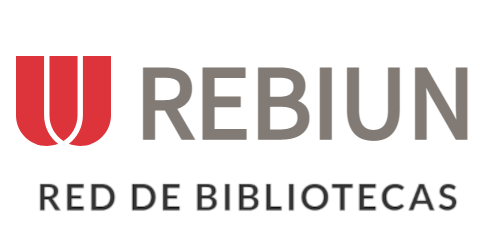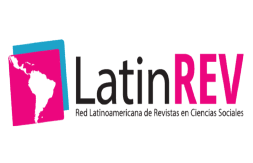Estrategias pedagógicas basadas en inteligencia artificial: Transformando la personalización del aprendizaje en educación nivel bachillerato
DOI:
https://doi.org/10.69639/arandu.v12i1.789Palabras clave:
inteligencia artificial, personalización del aprendizaje, educación inclusiva, plataformas educativas, pedagogía adaptativaResumen
El documento titulado "Estrategias pedagógicas fundamentadas en inteligencia artificial: "Transformando la personalización del aprendizaje en educación básica" examina la influencia de la inteligencia artificial (IA) en el ámbito de la educación nivel bachillerato, centrándose en cómo esta tecnología puede modificar la personalización del proceso educativo. La personalización del aprendizaje, definida como la habilidad para ajustar el proceso educativo a las necesidades, ritmos y estilos de aprendizaje únicos de los alumnos, ha constituido un objetivo fundamental en las estrategias pedagógicas contemporáneas. No obstante, la implementación efectiva de este enfoque ha sido restringida por la insuficiencia de recursos y el obstáculo de identificar estrategias que puedan tratar de manera eficaz la diversidad estudiantil. La inteligencia artificial se manifiesta como un instrumento potente para superar dichas barreras. Mediante algoritmos de aprendizaje automático y procesamiento de grandes volúmenes de datos, la Inteligencia Artificial facilita la creación de experiencias educativas personalizadas y adaptativas, facilitando la detección en tiempo real de las fortalezas y debilidades de los estudiantes. Este análisis investiga de qué manera la Inteligencia Artificial, mediante el uso de plataformas de aprendizaje avanzadas y sistemas de sugerencias, ayuda a los docentes a desarrollar currículos más flexibles que se adaptan a las necesidades específicas de ca-da alumno. Adicionalmente, se subraya la función de las tecnologías funda-mentadas en la Inteligencia Artificial en la generación de contextos educativos inclusivos. Al examinar la manera en que la Inteligencia Artificial puede facilitar adaptaciones para alumnos con requerimientos educativos especia-les, el estudio enfatiza su potencial para fomentar la equidad en el acceso a una educación de alta calidad. La adopción de estas tecnologías puede favorecer la optimización del desempeño académico de los alumnos al suministrarles instrumentos específicos para el fomento de sus competencias. El artículo también aborda los retos inherentes a la incorporación de la Inteligencia Artificial en los entornos educativos, tales como la insuficiencia en la capacitación docente, la resistencia al cambio y la exigencia de infraestructuras apropiadas. Pese a estos obstáculos, se deduce que la inteligencia artificial posee el potencial para revolucionar la educación básica, optimizan-do la calidad del aprendizaje y fomentando una pedagogía más inclusiva y personalizada.
Descargas
Citas
Baker, R. S. (2016). Stupid tutoring: The impact of intelligent tutoring systems on learning. Journal of Educational Psychology, 108(4), 643–661. https://doi.org/10.1037/edu0000089
Baker, R. S., & Siemens, G. (2020). Artificial intelligence in education: Bringing it all together. En OECD Digital Education Outlook 2021: Pushing the frontiers with AI, blockchain, and robots (pp. 43–63). OECD Publishing. https://doi.org/10.1787/589b283f-en
Baker, R. S., & Siemens, G. (2020). Educational data mining and learning analytics. Springer Handbook of Educational Data Mining, 1-11.
Bergström, P., et al. (2021). Adaptive learning through artificial intelligence. Applied Sciences, 11(15), 6820. https://doi.org/10.3390/app11156820
Bergström, P., et al. (2021). Adaptive learning through artificial intelligence. Applied Sciences, 11(18), 8491. https://doi.org/10.3390/app11188491
Bernal Parraga , A. P., Salinas Rivera, I. K., Allauca Melena, M. V., Vargas Solis Gisenia, G. A., Zambrano Lamilla, L. M., Palacios Cedeño, G. E., & Mena Moya, V. M. (2024). Integración de Tecnologías Digitales en la Enseñanza de Lengua y Litera-tura: Impacto en la Comprensión Lectora y la Creatividad en Educación Básica. Ciencia Latina Revista Científica Multidisciplinar, 8(4), 9683-9701. https://doi.org/10.37811/cl_rcm.v8i4.13117
Bernal Párraga, A. P., Garcia , M. D. J., Consuelo Sanchez, B., Guaman Santillan, R. Y., Nivela Cedeño, A. N., Cruz Roca, A. B., & Ruiz Medina, J. M. (2024). Integración de la Educación STEM en la Educación General Básica: Es-trategias, Impacto y Desafíos en el Contexto Educativo Actual. Ciencia Latina Revista Científica Multidisciplinar, 8(4), 8927-8949. https://doi.org/10.37811/cl_rcm.v8i4.13037
Bodily, R., & Verbert, K. (2017). Review of research on student-facing learning analytics dashboards and educational recommender systems. IEEE Transactions on Learning Technologies, 10(4), 405–418. https://doi.org/10.1109/TLT.2017.2740172
Bower, M., & Sturman, D. (2015). What are the educational affordances of wearable technologies?. Computers & Education, 88, 343–353. https://doi.org/10.1016/j.compedu.2015.07.013
Burke, L. A., & Hutchins, H. M. (2007). Training transfer: An integrative literature review. Human Resource Development Review, 6(3), 263–296. https://doi.org/10.1177/1534484307303035
Chatti, M. A., Dyckhoff, A. L., Schroeder, U., & Thüs, H. (2012). A reference model for learning analytics. International Journal of Technology Enhanced Learning, 4(5-6), 318–331. https://doi.org/10.1504/IJTEL.2012.051815
Chen, X., Zou, D., & Xie, H. (2021). Personalized intelligent tutoring system for adaptive learning in higher education: A review. Journal of Computer Assisted Learning, 37(1), 44–58. https://doi.org/10.1111/jcal.12452
Creswell, J. W., & Plano Clark, V. L. (2018). Designing and conducting mixed methods research (3ª ed.). SAGE Publications. https://us.sagepub.com/en-us/nam/designing-and-conducting-mixed-methods-research/book241842
Dede, C. (2019). Artificial intelligence and education: The importance of teacher and student agency. Journal of Educational Computing Research, 57(1), 5–17. https://doi.org/10.1177/0735633117743911
Delen, E., & Liew, J. (2016). The use of interactive environments to promote self-regulation in online learning: A literature review. European Journal of Contemporary Education, 15(1), 24–33. https://doi.org/10.13187/ejced.2016.15.24
Dillenbourg, P. (2016). The evolution of research on digital education technologies: Past, present, and future. Computers & Education, 104, 92–101. https://doi.org/10.1016/j.compedu.2016.09.003
Domínguez, A., Saenz-de-Navarrete, J., De-Marcos, L., Fernández-Sanz, L., Pagés, C., & Martínez-Herráiz, J. J. (2013). Gamifying learning experiences: Practical implications and outcomes. Computers & Education, 63, 380–392. https://doi.org/10.1016/j.compedu.2012.12.020
Duffy, G., & Kirkland, M. (2022). The role of technology in fostering intrinsic motivation in education. Educational Psychology Review, 35(3), 479-497. http://dx.doi.org/10.31223/X5363J
Durlak, J. A., & DuPre, E. P. (2008). Implementation matters: A review of research on the influence of implementation on program outcomes and the factors affecting implementation. American Journal of Community Psychology, 41(3-4), 327–350. https://doi.org/10.1007/s10464-008-9165-0
Eynon, R., & Malmberg, L. E. (2021). Lifelong learning and digital learning environments: AI’s potential and challenges. Learning, Media and Technology, 46(1), 1–11. https://doi.org/10.1080/17439884.2020.1833927
Fischer, G. (2019). Beyond hype and fear: The potential of AI in education. AI & Society, 34(1), 77–84. https://doi.org/10.1007/s00146-018-0842-6
Freitas, S., & Lacerda dos Reis, A. (2011). Serious games as new educational tools: How effective are they? Journal of Educational Technology & Society, 14(1), 37–47.
García-Peñalvo, F. J., & Seoane-Pardo, A. M. (2015). A current vision of eLearning innovation using technology. International Journal of Educational Technology in Higher Education, 12(1), 91–102. https://doi.org/10.1186/s41239-015-0006-9
García-Peñalvo, F. J., et al. (2021). Informal learning recognition through a cloud ecosystem.
González, D., & Pérez, M. (2022). Overcoming barriers in the integration of artificial intelligence in Ecuadorian schools. Journal of Educational Administration, 59(4), 455-473. https://doi.org/10.1108/JEA-11-2021-0281
González, D., et al. (2021). Barriers to the adoption of artificial intelligence in the Ecuadorian educational system. Journal of Educational Technology & Society, 24(3), 48-62. https://doi.org/10.1007/jets.2021.02403
González-Calatayud, V., Prendes-Espinosa, P., & Roig-Vila, R. (2021). A review of artificial intelligence in K-12 education. Open Journal of Leadership, 10(2), 183–202. https://doi.org/10.4236/ojl.2021.102012
Gopnik, A., Meltzoff, A. N., & Kuhl, P. K. (2017). The scientist in the crib: What early learning tells us about the mind. Harper Collins.
Greene, J. A., et al. (2021). A meta-analytic review of the relationship between epistemic cognition and academic achievement. Journal of Educational Psychology, 113(5), 972–985. https://doi.org/10.1037/edu0000665
Han, F., & Ellis, R. A. (2019). Using learning analytics to understand learning design: Opportunities and challenges. The Internet and Higher Education, 42, 1–10. https://doi.org/10.1016/j.iheduc.2019.03.002
Hasselbring, T. S., & Bledsoe, C. (2019). Technology and personalized learning: Opportunities for student voice. Journal of Research on Technology in Education, 51(3), 258-270. https://doi.org/10.1080/15391523.2019.1611507
Hattie, J. (2009). Visible learning: A synthesis of over 800 meta-analyses relating to achievement. Routledge.
Holmes, W., Bialik, M., & Fadel, C. (2019). Artificial intelligence in education: Promises and implications for teaching and learning. The Center for Curriculum Redesign.
Holmes, W., et al. (2021). Ethics of AI in education: Towards a community-wide framework. International Journal of Artificial Intelligence in Education, 31(4), 755–774. https://doi.org/10.1007/s40593-021-00239-1
Huang, R., & Hew, K. F. (2018). Gamified flipped learning approach: Its effects on students’ motivation and performance. Computers & Education, 126, 23–38. https://doi.org/10.1016/j.compedu.2018.07.003
Jisc. (2019). Artificial intelligence in tertiary education: A landscape review. https://www.jisc.ac.uk/reports/artificial-intelligence-in-tertiary-education
Landers, R. N. (2019). Developing a theory of gamified learning: Linking serious games and gamification of learning. Simulation & Gaming, 50(3), 273–295. https://doi.org/10.1177/1046878119831378
Luckin, R. (2018). Machine learning and human intelligence: The future of education for the 21st century. UCL Institute of Education Press. https://doi.org/10.2307/j.ctt20krxf8
Mayer, R. E. (2020). Multimedia learning (3.ª ed.). Cambridge University Press. https://doi.org/10.1017/9781316941355
McMillan, J. H., & Schumacher, S. (2014). Research in education: Evidence-based inquiry (7ª ed.). Pearson.
Mehrotra, S., & Kalra, A. (2021). AI-driven personalization in education: A systematic review of adaptive learning techniques. Education and Information Technologies, 26(4), 3675–3697. https://doi.org/10.1007/s10639-021-10543-6
Mitchell, T. M. (1997). Machine learning. McGraw Hill.
Nistor, N., et al. (2020). Gamifying children's linguistic intelligence with the Duolingo app: A case study from Indonesia. En Proceedings of the International Conference on Education and Artificial Intelligence Technologies (pp. 1-6). ACM.
https://doi.org/10.1145/3377571.3377581
OECD. (2021). Artificial intelligence and the future of skills. OECD Publishing.
https://doi.org/10.1787/3d52216c-en
Piaget, J. (2001). The psychology of intelligence. Routledge.
Pianta, R. C., & La Paro, K. M. (2022). A course on effective teacher-child interactions: Effects on teacher beliefs, knowledge, and observed practice. American Educational Research Journal, 59(1), 143–167. https://doi.org/10.3102/0002831211434596
Plass, J. L., Homer, B. D., & Kinzer, C. K. (2015). Foundations of game-based learning. Educational Psychologist, 50(4), 258–283. https://doi.org/10.1080/00461520.2015.1122533
Popenici, S. A. D., & Kerr, S. (2017). Exploring the impact of artificial intelligence on teaching and learning in higher education. Research and Practice in Technology Enhanced Learning, 12(1), 22. https://doi.org/10.1186/s41039-017-0062-8
Rose, D. H., & Dalton, B. (2020). Universal design for learning: Creating accessible and inclusive learning environments. Journal of Educational Psychology, 112(3), 389–403. https://doi.org/10.1037/edu0000374
Rose, D. H., & Dalton, B. (2020). Universal design for learning: Examining the evidence base for UDL. Journal of Educational Psychology, 112(4), 667-683. https://doi.org/10.1037/edu0000370
Ryan, R. M., & Deci, E. L. (2020). Intrinsic and extrinsic motivation from a self-determination theory perspective: Definitions, theory, practices, and future directions. Contemporary Educational Psychology, 61, 101860. https://doi.org/10.1016/j.cedpsych.2020.101860
Schunk, D. H., & DiBenedetto, M. K. (2021). Motivation and social-cognitive theory. Contemporary Educational Psychology, 60, 101830.
https://doi.org/10.1016/j.cedpsych.2019.101830
Seldon, A., & Abidoye, O. (2018). The fourth education revolution: How artificial intelligence is changing the face of learning. University of Buckingham Press.
Selwyn, N. (2019). Should robots replace teachers? AI and the future of education. Social Science Research Network. https://doi.org/10.2139/ssrn.3413891
Tashakkori, A., & Teddlie, C. (Eds.). (2010). SAGE handbook of mixed methods in social & behavioral research (2ª ed.). SAGE Publications. https://doi.org/10.4135/9781506335193
Teddlie, C., & Yu, F. (2007). Mixed methods sampling: A typology with examples. Journal of Mixed Methods Research, 1(1), 77–100. https://doi.org/10.1177/2345678906292430
Tegmark, M. (2017). Life 3.0: Being human in the age of artificial intelligence. Penguin Random House.
Torres Illescas, V., Villacrés Prieto, P., Román Cabrera, J., Bernal Párraga, A. (2024). Charting the Path of Reading Development: A Study on the Importance and Effective Strategies for Reading in Early Ages Based on Technology. In: Gervasi, O., Murgante, B., Garau, C., Taniar, D., C. Rocha, A.M.A., Faginas Lago, M.N. (eds) Computational Science and Its Applications – ICCSA 2024 Workshops. ICCSA 2024. Lecture Notes in Computer Science, vol 14820. Springer, Cham. https://doi.org/10.1007/978-3-031-65285-1_2
Vygotsky, L. S. (1978). Mind in society: The development of higher psychological processes. Harvard University Press. https://doi.org/10.2307/j.ctvjf9vz4
Wang, A. I., & Tahir, R. (2020). The effect of using Kahoot! for learning – A literature review. Computers & Education, 149, 103818. https://doi.org/10.1016/j.compedu.2020.103818
Zawacki-Richter, O., Marín, V. I., Bond, M., & Gouverneur, F. (2019). Systematic review of research on artificial intelligence applications in higher education. International Journal of Educational Technology in Higher Education, 16(1), 39. https://doi.org/10.1186/s41239-019-0171-0.
Publicado
Cómo citar
Número
Sección
Licencia
Derechos de autor 2025 Freddy Manuel Mora Villamar, Esperanza Ivonne Pozo Vera, Nelly Yaqueline Urrutia Franco

Esta obra está bajo una licencia internacional Creative Commons Atribución 4.0.





















